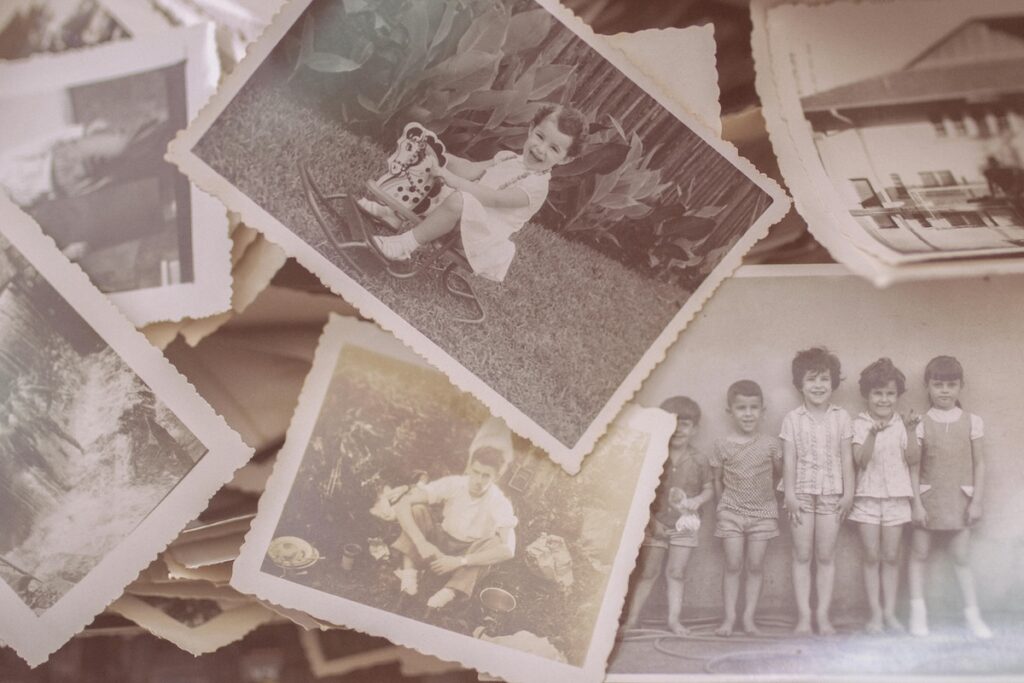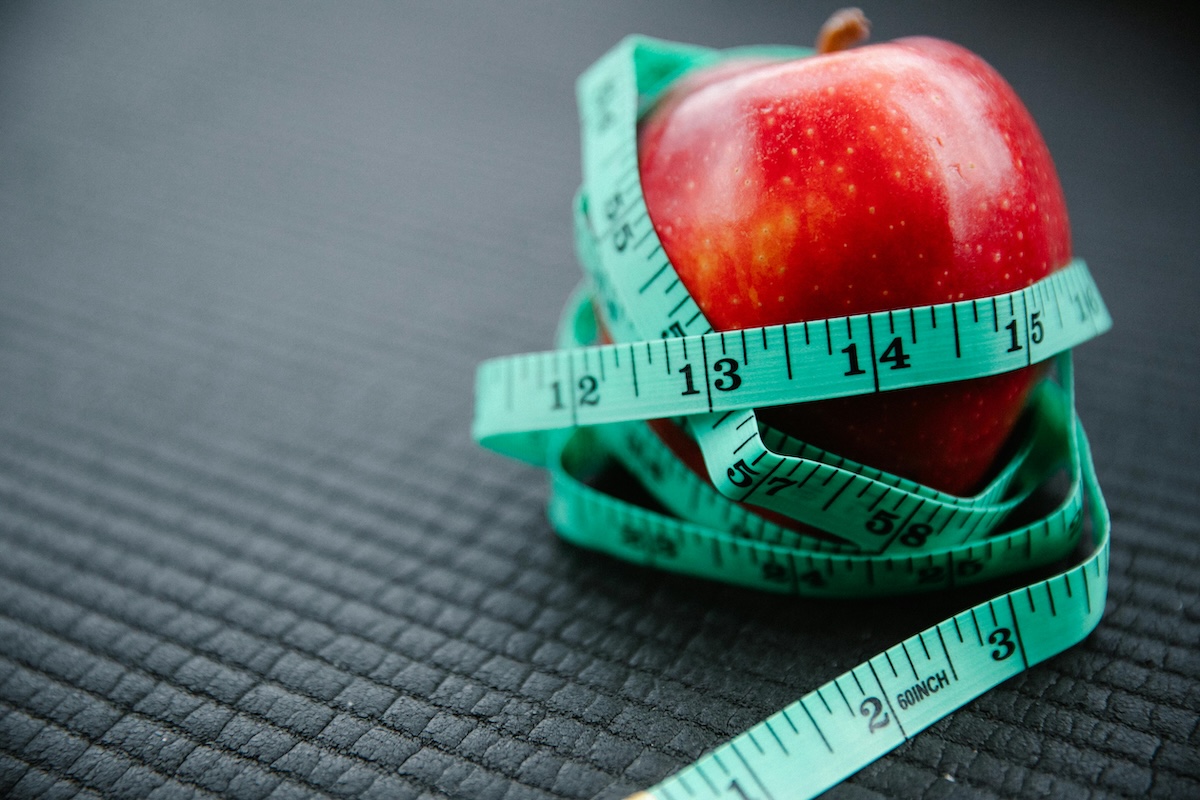EP 89: The Art of Making Memories

I read a book last week called The Art of Making Memories. It was fascinating, though nothing like I expected. In this week’s episode, I share what I learned and what I think of this work.
Show Notes
VERSES CITED:
- John 16:21 – “A woman giving birth to a child has pain because her time has come; but when her baby is born she forgets the anguish because of her joy that a child is born into the world.”
- Deuteronomy 11:19 – “Teach them to your children, speaking about them when you sit at home and when you walk along the road, when you lie down and when you get up.”
- Philippians 4:8 – “Finally, brothers and sisters, whatever is true, whatever is noble, whatever is right, whatever is pure, whatever is lovely, whatever is admirable—if anything is excellent or praiseworthy—think about such things.”
- 1 Corinthians 10:31 – “Whether, then, you eat or drink or whatever you do, do all to the glory of God.”
- John 10:10 – “…I have come that they may have life, and that they may have it more abundantly.”
RELATED LINKS:
- The Art of Making Memories by Meik Wiking
- Episode 28 – Bible Memory Tips
- Episode 85 – Memorize Proverbs 3 with Me
- M Is for Mama – Abbie Halberstadt’s birth stories
- Glad Tidings – the first 25 years of Flanders Family Christmas Letters
- Episode 22 – Why We Still Send Christmas Cards & Letters
- Monthly Holidays & Quirky Celebrations – and free printables and other fun resources for enjoying them to the full
STAY CONNECTED:
- Subscribe: Flanders Family Freebies -weekly themed link lists of free resources
- Instagram: @flanders_family – follow for more great content
- Family Blog: Flanders Family Home Life – parenting tips, homeschool help, printables
- Marriage Blog: Loving Life at Home– encouragement for wives, mothers, believers

The Art of Making Memories
Full Transcript for Episode 89
Hello, friend. Welcome to episode 89 of Loving Life at Home.
This week, I’d like to talk about the art of making memories, which is actually the title of a book I just finished, a book by Mike Viking. He works for the Happiness Research Institute in Denmark. Although I didn’t realize that when I picked up the book, I thought actually that I was getting a book that might contain some fun ideas for making this summer one that my kids won’t forget. I thought that it would be more of a bucket list of things to do to help build memories.
But actually it was more scientific than that. It was more of a treatise on how memories were made and stored and retrieved and hacks for optimizing that process. It was not written from a Christian perspective, so in one sense I feel like it fell short in some of the areas we’ll discuss, and I’ll give you more detail on that in a little bit. But it was fascinating and presented from a scientific viewpoint. The subtitle is “How to Create and Remember Happy Moments.”
Harness the Power of Novel Experiences
I learned several interesting things reading this book, or more accurately listening to the audiobook. First is that we tend to remember new experiences more vividly, the firsts. This is true in my own life. I remember:
- The first time I ever went down a water slide. It wasn’t at one of the extensive water parks like we have today. It was just a little flume in the backwoods of Eureka Springs, but it was a novel experience and my sister and I spent the whole afternoon climbing up the hill and sliding down that one flume over and over and over again.
- The first time I ever went snow sledding and my dad had snowed a bunch overnight in Dallas and my dad got up early and built a toboggan and took my sister and me and some friends to White Rock Lake to slide down the hills there.
- The first time I was ever tall enough to ride a roller coaster, although I was actually kind of standing up on tiptoes inside my tennis shoes for my feet more all the way to the bottom of my shoes to make myself tall enough to reach the marker that said that I could ride it with my dad.
- The first time I ever had surgery. I was only two years old and was having a tonsillectomy, but I know I remember it myself and I don’t just remember what I was told about the event because the most vivid recollection I have from that day was being alone in the hallway outside the operating room and there was a woman on a gurney right beside me who reminded me a little bit of my grandmother. And when they came to wheel me into the OR, she winked at me and said, I’ll let you go first.
So anyway, novel experiences are often easier to remember. So be sure to sprinkle those throughout your life liberally.
Traditions are important too, although the researcher didn’t say so much about this, but I know from past experience that doing certain things over and over again in the same way every year provides a sense of belonging and security and identity and dependability for our children.
So those family traditions are important also. But throw some new elements into the mix as well, even if it just means trying new foods or playing new games or finding new books to read or new places to visit, that kind of thing.
Make Use of the Peak -End Effect
Then one of the other things the author talked about was ending on a high note. This idea of the peak end effect where we tend to recall events in our life according to their highest level of intensity and how they ended rather than an average of the whole experience.
So if you go on vacation, you remember the high point of the vacation, you remember how it ended, not necessarily every single day at the beach or in the mountains or whatever was going on.
And I know that this is true also.
They’ve done some classic research on this phenomenon. One of the studies that the author quoted was some research or a study done on colonoscopy patients where half of the patients were in a group where the doctor did the colonoscopy and finished as quickly as he could.
The other had the patients receive the same colonoscopy that lasted the same length of time. But then they just left the scope in for three extra minutes without moving it around. And that second group of patients rated the experience as less painful than the first and were more willing to undergo the same procedure again in the future.
Another experiment he quoted was they had two groups of people and one submerged their hands in very, very cold water. I think it was 14 degrees Celsius for 30 seconds. And the other put their hand in the same 14 degrees Celsius water for 30 seconds, but then left it there another 15 seconds, I think, at a higher temperature. They gradually warmed it up by a degree.
And the ones that had their hand in cold water the longest, but ended with warmer water than they started with, felt like it was less painful than the others. Whereas they both had it in the same cold water for 30 seconds. The fact that the one group ended in warmer water significantly altered their memory of the situation.
That may be what is at play in the experience of childbirth for women. John 16:21 tells us “A woman giving birth to a child has pain because her time has come. But when her baby is born, she forgets the anguish because of her joy that a child is born into the world.”
Well, I know that has certainly been the case with me. All that pain and anguish that happens in childbirth is quickly forgotten as soon as they give me that sweet little newborn to hold in my own arms.
Now, if they were able to somehow reverse that order, and when I went to the hospital, they would show me the little bundle wrapped in pink or blue and say, “Hey, here’s your new baby. We’re going to go put this one in the nursery for a few hours now while we torture you.” I probably wouldn’t have signed up for that experience 12 times over.
But the fact that the pain comes first and then the joy of holding that sweet little baby would have me looking forward to returning for the next delivery as soon as I left the hospital with the most recent newborn. So it definitely makes a difference how the event ends.
Optimize Spaced Repetition
Something else the author discussed was repetition. He made note of the fact that we lose about 40% of new information within 20 minutes and 70% within 24 hours. And so in order to hold on to new information, we need to have some kind of review. The best way to do that is through spaced repetition, where you review the information again after a few minutes, a few hours, a few days, a few weeks, a month, and so forth.
This is something that I’ve done with my Bible memory. Charlotte Mason recommended a method for practicing memory work, not necessarily Bible memory work, but anything that you’re memorizing, where you reviewed the same thing every day until you got it down. And then you do it every other day, and then once a week, and then once a month.
And so my little Bible memory notebook, I have sections for daily, odd and even days, days one through seven, you know, Sunday through Saturday, and then one through 31 for each of the days of the month. And as I add new passages, the passages get bumped down to less frequent review as I add new passages in.
So the one I learned last month, I’m reviewing every other day right now. And the one I’m working on currently, Philippians 2:1-16, I’m reviewing daily. But I have that one down pretty well now, so I’ll probably bump it to even days and bump my Proverbs 3 to one of the days of the week. And eventually it will get down to where each of those are just being reviewed once a month under days one through 31.
So if you’re interested in that, I talk more about it in my Bible memory tips episode. I’ll link that in the show notes. But I think the importance of spaced repetition is one reason the Bible tells parents to teach their children the word of God and to speak of it as they sit in their house, as they walk along the way, as they rise up and as they lie down. Those are built-in periods of time that you can repeat and review the principles that you’re trying to teach your children out of the word of God.
I think it’s also interesting to note that you do recall more easily the things that you have reviewed. And so if you are one who wants to rehearse in your mind every offense and you review over and over again the things that people have said or done to you that have been hurtful in some way, then that’s what you’re going to remember. But if you focus on the things that others do that lift you up or encourage you, then that’s what you’ll remember.
Again, that’s one reason I think we’re told in Philippians 4:8 that whatever things are true, whatever things are honest, whatever things are just, whatever things arepure, whatever things are lovely, whatever things are of good report, if there’s any virtue or if there’s any praise, we need to think on those things. So think on the positive good things in life and remember those and let all the bad stuff go.
Beware of Faulty Memories
The author also had a section on faulty memories and the fact that the more time passes between the occurrence of an event and your recollection of it, the more potential there is that you are going to misremember what happened.
And I was reminded of this fact recently when I was talking to a daughter where she had been present for the birth of her younger sister, 10 years her junior, and she thought that she had gotten to cut the baby’s cord. And I have photographs showing that it was her older brother that cut that little sister’s cord. So she’s been rehearsing that event in her mind in an inaccurate way.
By the way, it was the second time in a week that some of my kids have asked me about their birth or various births out of the 12 in our family. And it makes me realize, oh, I need to recount those stories for them because there’s some misunderstanding about how things happened and why they happened. And so I’m going to take a page out of my sweet friend Abby Halberstadt’s book and do a series on birth stories. And I will probably start that before the end of the summer so that the kids will have it from the source as to how things happened when they were born.
Something else that the author talked about in that section on faulty memories or implanted memories. And what a scary thing that is — that you can suggest memories to people of things that never even happened. And they’ve done experiments on that.
And this is not like under hypnosis, which is extremely scary in my mind, but just in regular conversation where they suggested that something happened that didn’t happen and they knew didn’t happen. And later, the people that they had made that suggestion to clung to their memories of that event as if it had happened.
I think in this particular experiment, they had interviewed family members of the people in the experiment and gotten three stories that actually happened plus a fourth that did not happen and interviewed the subjects in the experiment about all four things. And when they couldn’t recall the one, they’d say, oh yes, this is how it happened. How did you feel when that happened? And started asking out questions about something that didn’t happen.
And they ended up being able to give all sorts of details associated with that non-event. So I think that is a warning to be really careful what kind of a counselor you go to and how much stock you put in repressed memories because sometimes the things that they say they are bringing out are not accurate to reality.
Try Using Memory Triggers
Anyway, another section in the book was dedicated to memory triggers and the importance of photo albums. He made a good argument for printing those pictures out and having physical copies also.
I know that they’ve shown that things that you read that is written on paper, you retain a lot better than books that you read in digital format. I know that is certainly the case for me. I do not like reading digital books at all. I would much prefer a hard copy so that I can mark up the margins and underline things that I want to remember out of it.
And the nice thing about reading a physical copy of a book is that the order doesn’t change. You know, depending on what device you’re reading on, the position on the page of certain information is going to shift. If you go from tablet to phone to laptop computer, that text is not going to remain in the same position on each device.
But when you have a print copy of a book, it stays. If it’s in the upper left-hand corner of the page the first time you read it, it is going to stay in the upper left-hand corner of the page when you go back to retrieve it and to find again what it was that you wanted to remember.
So I think with the photographs, you get the same kind of a benefit when you can hold it in your hand and look at it. Although I have caught myself, I don’t know if you’ve ever done this, trying to zoom in on a printed photograph and it is impossible. I will sometimes reach down and spread my fingers on the surface of the photo thinking I’m going to be able to enlarge it and that doesn’t work off of a digital device.
So I guess there are some benefits to havingdigital copies of your photos also.
But one of the drawbacks that the author noted was the potential to lose it, and he had lost photographs that he had taken that were just stored digitally, and I know that that’s been the case for me too.
Not once, but twice, I’ve lost all the photographs that I had on my computer, and they weren’t stored on the cloud, so there’s no retrieving them. I accidentally erased my entire photo album, not realizing it, several years ago, and then a few years after that, I had a big glass of water spilled on my computer that totally fried the hard drive, and I couldn’t retrieve any of those photos, so they’re just gone.
But back when I had SLR cameras, I was able to take a roll of film and have it processed. It was also a lot less overwhelming when you just get 24 or 36 pictures and you’re stuck with whatever came out of the development of the film. You don’t get to pour over 100 copies of the same shot trying to decide which one looks best. You just got the one, and that’s the one that went into all the scrapbooks or the photo albums. But those photo albums do serve as memory triggers and help to retain happy memories and keep them alive in our minds.
But photo albums aren’t the only triggers for happy memories. Smells can take you back to sweet memories as well, and so can certain tastes. When you taste a special recipe from childhood, it can take you back. Sounds, special music will transport you to the time when you first heard it or when that was a big part of the memories associated with that sound or that music.
Write Down the Things You Want to Remember
Journals are another great way to trigger memories. I keep a bullet journal or a microjournal, I guess you could say, where I just write down one or two sentences for every day of what happened on that day, and I’ve done that ever since before I was even married, but it’s been great for clarifying memories when we differ in our recollection of things. We can go back to the calendar from that year and look up the date when a significant event happened or who we celebrated a specific holiday with.
And I have kids who keep a gratitude journal or at least list off three things every day that they are thankful for, and this is something that you could do in your family as well, where you keep a jar and people could write down their happy memories and put them in the jar.
I write Christmas letters every year, and they’re pretty lengthy. I think I did an episode on that if you’re interested in how I go about writing our annual update. I’ll try to link that in the show notes today as well, but one of the things that we do is to reread our old Christmas letters every year to the kids, which is another way of reviewing those moments of our family history, the good times, the significant events, the crazy mistakes, even bad memories or scary things that happened or things that were really hard at the time are good to recall because there’s lessons learned associated with that.
In fact, the author of this book talked also about how embarrassing memories can become really funny memories when you just embrace it and accept the fact that everybody has those moments, and it puts others at ease when you admit yours.
So we have plenty of those embarrassing things that have happened that we’ve put into our Christmas letters as well, and we review those, like I said, every year around Christmas time and use that as a way of recalling and discussing and reminiscing together with the family.
Several Suggestions for Creating Good Memories
Then in the end of the book, the author did end up giving a little listing of different suggestions for making happy memories, which was really more of what I was expecting from the whole book. So I was glad that he included that at the end. He included some quirky holidays, which I actually have a monthly post devoted to special holidays and quirky celebrations on my family blog, which I’ll link in the show notes today also.
But by the end of the book, it seemed apparent to me that the author was really pursuing happiness for happiness’s sake. And I think that that is a mistake. As a Christian, I feel like happiness is the natural byproduct of a life well-lived, a life with purpose, a life of service to others, a life dedicated to glorifying God, whether we eat or drink or whatever we do, as 1 Corinthians 10:31 tells us.
But when you are seeking happiness for the sake of happiness, and that is the destination you’re trying to get to, it’s almost like the pot of gold at the end of the rainbow.It is elusive. You can’t get to the end of the rainbow. And in this life, I don’t think you’re just going to find happiness by searching for happiness, at least not the deep and lasting and abiding joy that we really want in life.
And so, in that sense, reading this book made me a little bit sad, not only for the person writing it, but also for the people reading it who think that the solution to the void they feel lies in triggering happy memories or experiencing novel things or reviewing the day’s events.
But that deep and lasting and abiding sense of joy and happiness, I don’t think you can find it apart from Christ. He is the source of that.
And so, if happiness eludes you, I would encourage you to look there first and make sure that you have a personal relationship with Jesus and that you are abiding in the vine and taking full advantage of the abundant, joyful life he came to give you.





